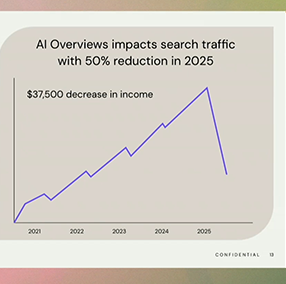I’m having professional identity problems. Perhaps it’s a question of reality vs. perception, but for years I’ve been getting the same frustrating question when explaining to strangers what I do professionally.
When I say I’m a direct marketer, this seems to cover the basic tools and concepts of the business: a marketing database with segmentation, accountability with measured response, testing and customer relationship building. I also say DM uses all available media from mail to print to broadcast. And the fact that there’s an organization called the Direct Marketing Association seems to legitimize the whole thing.
In the past, when describing DM to advertising and marketing outsiders, I invariably got a response like “Oh, I see. You mean j – mail and all those catalogs?”
When I answer DM questions these days, I add the Web to the list of media we use. Yet the response is the same. “Oh, I see. You mean j – mail and all those catalogs and telephone calls?”
What’s the reality? Whatever we say we do, whoever we say we are, for some reason the perception of direct marketers hasn’t changed or improved much in the last 20 or 30 years. And yet we are changing, even though perceptions haven’t caught up. As we proceed successfully online, this medium could transform DM in relation to all forms of advertising.
If you follow the trades and the newspaper financial pages, it’s clear everyone perceives digital communication and the Internet as the most important event since Gutenberg’s Bible.
But while direct marketers see it as a massive opportunity for customer interaction and sales, general advertisers and agencies seem to view the Web as a great branding tool. They use it to familiarize customers and prospects with products and occasionally drive prospects to the store, but they don’t actually delve into e-commerce.
Marketers have come to agree that database and relationship marketing are essential. Our own gurus are now finding major advertisers and general agencies much more receptive to theories of relationship marketing and return on investment. Many general ad agencies are strengthening client appeal with database capabilities. They’re purchasing database companies and even setting up relationship development and frequency marketing programs.
At the same time, we – the original customer-driven marketers – are focusing on branding, which used to be (and still is) the focus of the general agencies. Some of us even claim good branding ads can be turned into direct response ads.
But questions arise: When working with benefits that touch on our customers’ desires and dreams, are we branding? Are you a direct marketer who practices sound brand building or a generalist who puts DM into the media mix? Who are the real interactive marketers?
DMers have one major advantage over general advertisers: accountability. General advertisers are having a hard time evaluating clients’ brand-building Web investments.
A recent Acxiom survey indicates 49% of direct marketers’ Web sites are profitable. And the DMA conducted a study to see if Web purchasers and direct mail shoppers were similar. The answer? Yes – 73% of Web buyers also buy from catalogs. Of course.
General agencies are also having problems with their biggest medium: network television. Networks no longer have a monopoly on mass-appeal family shows. Thanks to cable, viewership is fragmented. Families with several televisions in their home watch several shows at once. The top-rated programs offer fewer viewers at higher ad rates. It’s clear agencies need new mass media opportunities. The Web is the likely candidate, but it can’t work for them without accountability.
With two major recent acquisitions, the DMA has taken strong steps to provide direct marketers with a foothold in this medium.
The Association for Interactive Media (AIM) was bought as a subsidiary last October, and this May the Internet Alliance – with members like America Online, Bell Atlantic, CheckFree, DLJ Direct, eBay, Microsoft and U S West – came aboard as an independent division.
In the past, no one questioned that direct marketing and general advertising were different. But their compatibility has been demonstrated over and over during the past 15 to 20 years – so much so that while many shops have developed or added DM groups to their operations, direct agencies have expanded to successfully compete with general agencies.
Until lately, however, it seemed that ultimately DMers might be absorbed into the big generalists and DM might become just another of the many services offered.
Now that’s changed. The generalists, dogged by big-brand reticence to disturb distributor and retail relations, have not moved into e-commerce as aggressively as DMers.
America’s industry leaders (some of the general agencies’ biggest clients) are already talking about the future in terms of “Deller” and “Dellee,” according to a recent article in The Wall Street Journal. The Deller emulates direct seller Michael Dell and his Dell Computer Corp. The Dellee gets outflanked like Compaq Computer Corp. Many execs see this as the future for other industries.
If so, perhaps DMers might well control their own transformation and end up as the real interactive marketers, branding and all. Then we could absorb those ad agencies, instead of vice versa – and stop worrying about reality, perception, transformation and survival.
 Network
Network

